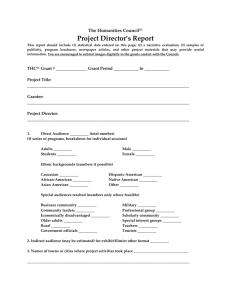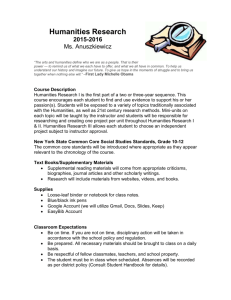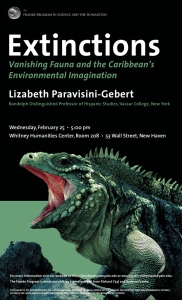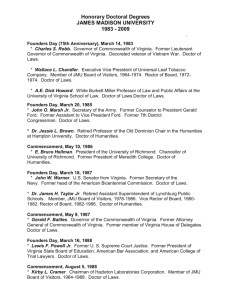QUESTION_HUMANITIES - Elements of Writing Proficiency
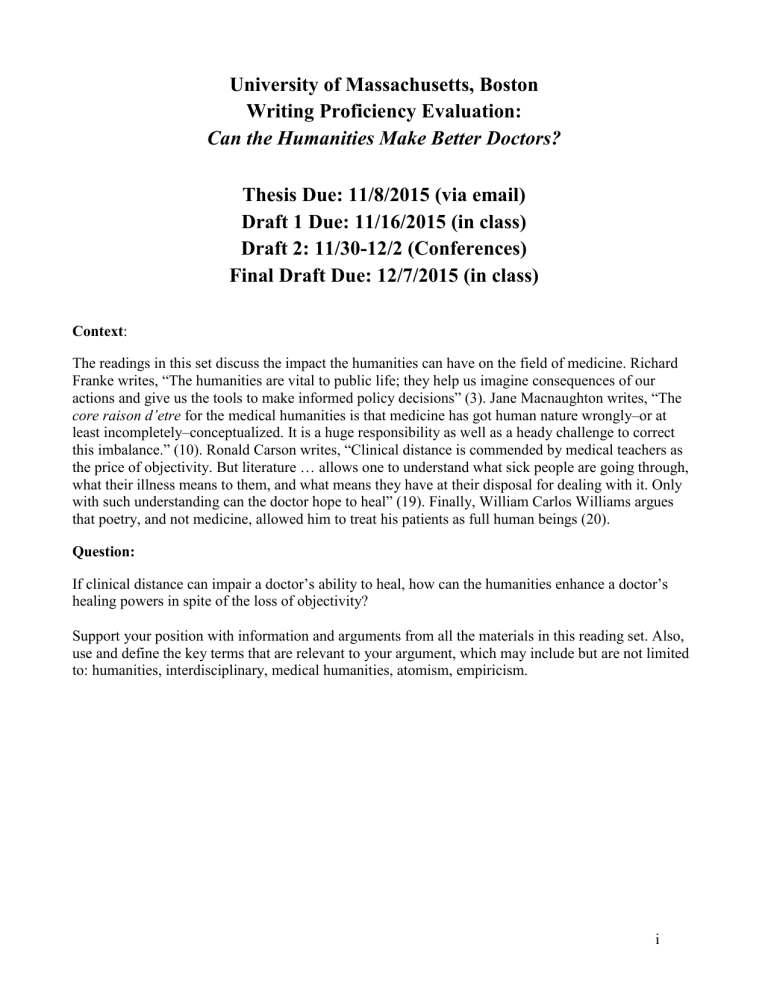
University of Massachusetts, Boston
Writing Proficiency Evaluation:
Can the Humanities Make Better Doctors?
Thesis Due: 11/8/2015 (via email)
Draft 1 Due: 11/16/2015 (in class)
Draft 2: 11/30-12/2 (Conferences)
Final Draft Due: 12/7/2015 (in class)
Context :
The readings in this set discuss the impact the humanities can have on the field of medicine. Richard
Franke writes, “The humanities are vital to public life; they help us imagine consequences of our actions and give us the tools to make informed policy decisions” (3). Jane Macnaughton writes, “The core raison d’etre for the medical humanities is that medicine has got human nature wrongly–or at least incompletely–conceptualized. It is a huge responsibility as well as a heady challenge to correct this imbalance.” (10). Ronald Carson writes, “Clinical distance is commended by medical teachers as the price of objectivity. But literature … allows one to understand what sick people are going through, what their illness means to them, and what means they have at their disposal for dealing with it. Only with such understanding can the doctor hope to heal” (19). Finally, William Carlos Williams argues that poetry, and not medicine, allowed him to treat his patients as full human beings (20).
Question:
If clinical distance can impair a doctor’s ability to heal, how can the humanities enhance a doctor’s healing powers in spite of the loss of objectivity?
Support your position with information and arguments from all the materials in this reading set. Also, use and define the key terms that are relevant to your argument, which may include but are not limited to: humanities, interdisciplinary, medical humanities, atomism, empiricism.
i







